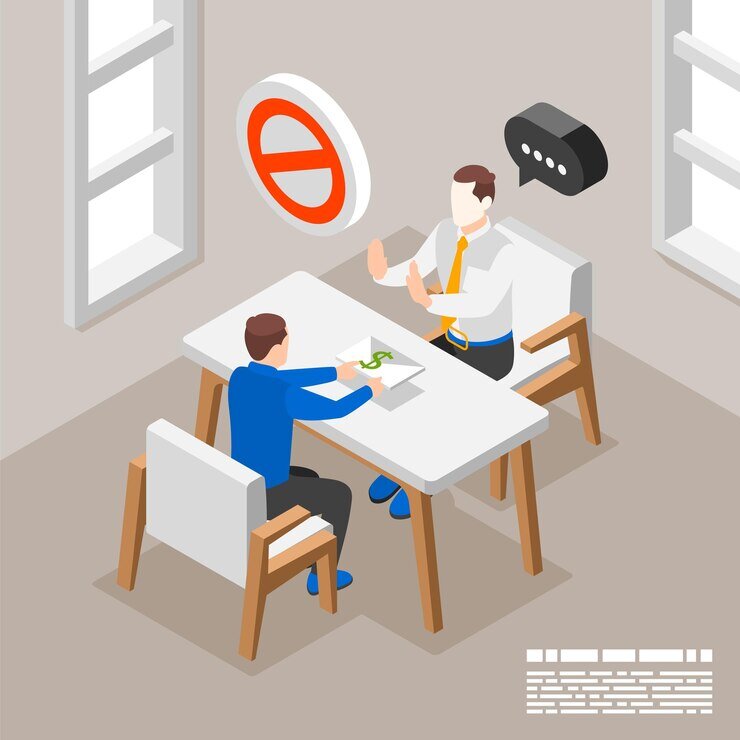Introduction
Especially when it comes to navigating offers, selling your home can be both exciting and stressful. Whether you’re a first-time seller or a seasoned pro, it’s important to know how to evaluate and negotiate deals in order to get the best deal. As a seller, the offers you get will affect not only how much money you make from the sale, but also how long it takes and how pleasant the whole experience is.
It’s not enough to just take the highest bid; you also have to think about things like contingencies, closing dates, and the buyer’s willingness to follow through. In this guide, we’ll show you the most important things you need to know to make the best counteroffers, evaluate deals, and negotiate to get the best terms. By the end, you’ll be ready to easily look at offers and find a deal that fits your needs.

This home selling guide is prepared by professional home buyers from Cardinal House Buyers
Decoding the Offer: What to Look For
To make an informed choice when navigating offers, it’s important to understand the details of each plan. You should look at more than just the sale price when evaluating a deal because not all of them are the same. These are the things you should look for in home offers.
Price and Terms
The price is usually the first thing you’ll notice about an offer. This is an important thing to think about, but it shouldn’t be the only thing that makes you decide. Understanding the terms that go along with the price is important when navigating offers. Although a higher price might seem appealing, if the customer is too picky about the terms, the deal might not be as good as it seems. Check out the buyer’s preferred close date, any conditions that may need to be met, and any other factors that may affect the final sale.
Contingencies and Their Impact
Clauses called “contingencies” let buyers back out of the deal if certain things happen, like an unsatisfactory home check or having trouble getting financing. It’s important to consider the conditions that come with each deal when navigating offers. Usually, an offer that is clean and doesn’t depend on many things is better than one that does. For example, a buyer who makes an offer without a condition of review might be more sure of themselves, while a buyer who makes an offer with multiple conditions could be less sure. Make sure you think about how each possible outcome could slow or stop the sale.
Earnest Money and What It Indicates
Earnest money is a deposit that the buyer puts down to show that they are serious about buying. Some people pay 1% to 3% of the buying price as earnest money. However, the amount can change. Earnest money shows how serious the buyer is to the purchase when navigating offers. A buyer who puts down a bigger deposit is usually more serious and less likely to back out of the deal. A small earnest money deposit, on the other hand, could mean that the buyer isn’t sure about the deal, which could cause delays or talks later on.
The Buyer’s Position
Figuring out where the buyer stands in the market is another important part of navigating offers. Is the buyer already accepted for a mortgage, or do they plan to get financing later? A buyer who is pre-approved is usually in a better position because it means they’ve been pre-approved by a loan and are more likely to be able to get the money they need. You might still want to talk to a buyer who hasn’t been pre-approved, but it comes with some risk because they might have trouble getting credit later on.

Evaluating Offers Beyond the Price
It’s important to know that the biggest offer isn’t always the best when navigating offers during the home selling process. A seller’s first thought is often the offer price, but there are other important things that can also affect their choice. Let’s talk about some things you should think about besides price to make sure you choose the best item for your sale.
Flexibility on Closing Dates
When navigating offers, one of the most important things to think about is how flexible the buyer is with the closing date. A buyer who is ready to accommodate your preferred timeline can make the entire process smoother. Having a flexible closing date can be very helpful, especially in a competitive market, whether you need more time to find a new home or just want to close quickly.
Understanding Escalation Clauses
In markets where competition is high, escalation clauses are becoming more popular. Pay close attention to any escalation terms in the buyer’s offer when navigating offers. These clauses raise the price of the offer immediately if someone makes a higher bid, usually up to a certain amount. You might get the best price for your home this way, and you won’t have to deal with buyers over and over again.
Non-Monetary Terms and Conditions
Price is an important part of any deal, but other terms can also be very important when navigating offers. Look for deals that come with good contingencies, like appraisal contingencies that aren’t as strict or inspection contingencies that are waived. If the buyers are ready to get rid of the contingencies, the process can go more smoothly and there won’t be as many problems or delays at closing.
Also, think about deals where the buyer might want to keep some appliances or fixtures in the house. These requests don’t have a direct effect on the price, but they might affect your choice if they fit your wants and tastes.
Assessing the Buyer’s Financial Strength
If the buyer is having trouble with money, a better offer might not be worth much. Always consider the buyer’s financial options when navigating offers. You can be sure that the buyer can go through with the sale if they show you a pre-approval letter or proof of funds. For example, cash deals are often appealing because they don’t depend on getting a mortgage, and they can speed up the closing process.
Buyer’s Motivation and Flexibility
What a buyer is trying to achieve by making an offer can show how quickly the deal will go. If the buyer is really eager to buy, maybe because they have to move for work or because they need to close by a certain date, they may be more willing to work with your terms. Consider the buyer’s level of motivation when navigating offers. A buyer who is highly motivated may be more willing to negotiate or give better terms.

Common Negotiation Pitfalls to Avoid
It’s easy to make mistakes when navigating offers in the home-selling process that could affect the sale. By avoiding these common mistakes, you can get the best deal possible without any extra problems. Things you should avoid are the following:
Overvaluing Your Home
Overvaluing their property is one of the biggest errors buyers make when navigating offers. It’s normal to feel attached to your home, but setting the price too high can mean that you don’t get many offers or have to negotiate for a long time, which could lead to a lower end price. You can get more serious offers and keep buyers from walking away if you set a reasonable asking price based on the current market conditions and professional estimates.
Allowing Emotional Attachment to Influence Decisions
It’s easy to let your personal feelings interfere with your reasoning when navigating offers. A lot of buyers may have strong feelings about their home, which can make them turn down good offers or demand an unreasonable price. It’s important to keep your emotions out of the sale process. Pay attention to the facts and ask your real estate agent to help you look at each deal without bias.
Rejecting Good Offers Out of Habit
Rejecting a good offer just because you’re waiting for a better one is another common mistake in navigating offers. This might be because they don’t want to settle for less, but if they wait for the “perfect” offer, they might miss out on a great deal. Don’t get rid of an offer right away if it meets your wants and comes from a qualified buyer. Sometimes it’s worth it to take a strong deal, even if it’s not the highest price.
Ignoring the Bigger Picture
When navigating offers, price is important, but it shouldn’t be the only thing to think about. There may be buyers who give more money, but the terms, like contingencies, closing flexibility, and earnest money, are very important. For example, a lower-priced offer with fewer conditions and a quick close might be better than a higher-priced offer with lots of conditions and delays. Spend some time looking at the whole deal, not just the price.
Underestimating Market Conditions
To find offers in a crowded market, you need to know what the latest trends are. When the market is favorable to sellers, you may get more than one offer and be able to improve the terms. In a buyer’s market, on the other hand, you might need to be more open and honest in your talks. If you don’t notice these conditions, you might miss out on chances. Talk to your real estate agent to find out if it’s a buyer’s market or a seller’s market. Then, change how you negotiate based on what you find out.
Failing to Counteroffer Strategically
It’s important to remember this when navigating offers and not just accept or reject the first offer you get. You can make terms that better meet your needs with a counteroffer, which is an important tool in talks. A lot of sellers, though, make the mistake of either taking a low offer right away or turning it down without making a good counteroffer. Instead, come up with a planned counterattack by focusing on what’s most important, like the price, the conditions, or the ability to close early.
Letting Small Details Derail the Deal
If sellers aren’t careful, small things can often throw off talks. Whether it’s a request for small repairs or a disagreement about when to move out, letting small issues get in the way of your talks can make both sides angry. You should be strong on important issues, but try to be flexible on small requests that don’t change the deal as a whole. When looking at offers, keeping an open mind can help you stay out of trouble and keep the deal moving forward.

Navigating Multiple Offers: Strategies for Leveraging Competition
Multiple offers can be both exciting and difficult when you’re navigating offers in a competitive housing market. When there are multiple offers on your home, you can use the competition to your advantage and get the best deal. But dealing with multiple offers needs a well-thought-out plan and knowledge of the pros and cons of each offer.
Evaluate All Offers Thoroughly
Examining each offer carefully is the first step in navigating offers from various buyers. Even though the deal price is very important, you should also think about things other than the numbers, like contingencies, buyer qualifications, and flexibility.
Offer Price: The highest offer might seem like the best choice at first, but it’s important to think about how it compares to your goals and the home’s market value.
Possible outcomes: Try to find deals that have fewer conditions or better terms. For instance, a buyer who is willing to waive some screening conditions might be more appealing than one who has a lot of conditions.
Closing Flexibility: Some buyers may be willing to work with your moving schedule or give a closing date that is flexible. These things might be worth just as much as a higher deal price.
Communicate with All Buyers Transparently
Once you know which offers you want, it’s time to talk to all of the buyers. Clear communication can help you keep your power and keep potential buyers from turning away.
Telling Buyers: Tell each buyer that there are more than one deal on the table. Be careful not to tell anyone about the other offers so that the process stays fair.
Last and Best Offers: Requesting the “best and final” offer is a common tactic for navigating offers in a multiple-offer situation. To stay competitive, this makes buyers want to put their best foot forward by sending the highest bid or the best terms.
Leverage Competition to Drive Up the Price
You can make your house more competitive when navigating offers by letting potential buyers know that there are several people interested in it. That might make the price go up and encourage people to make better bids.
Market Demand: If you’re in a seller’s market with a lot of interest in your home, make sure to say that. This might make people who want to buy make more aggressive deals.
Negotiation Strategies: You can also use the other person as leverage by asking for better terms on the deal, like a bigger earnest money deposit, fewer conditions, or a faster closing date.
Don’t Get Too Emotionally Attached to One Offer
Navigating offers takes a level-headed approach, even though it can be tempting to choose one offer over another, especially if the buyer seems very excited or makes a strong emotional case. Pay attention to the practical aspects, like how financially stable the buyer is, the terms of the offer, and how quickly the buyer can close the deal.
Keep your feelings in check so you don’t make choices based on your own preferences or biases. Always put the terms that will lead to the best end for you at the top of the list.
Understand the Legal and Ethical Boundaries
Staying within the law and moral limits is crucial when navigating offers and fostering a competitive environment. You can’t tell other buyers specifics about competing deals because that could get you in trouble with the law.
Talk to your real estate agent. An experienced real estate agent can help you make sure you follow all the rules and laws when dealing with various offers. Also, they can tell you how to best reply to offers and look out for your own best interests.
Choosing the Right Offer
The last step is selecting the best deal for you after navigating offers and carefully evaluating each one. Even though the highest price might seem good, think about things like how reliable the buyer is, any conditions that need to be met, and the terms that work best for you.
Weighing the Terms: Don’t just look at the price of the offer; also look at the terms and conditions of the deal. It’s possible that a buyer with fewer conditions or a faster closing date would be more appealing than one with a higher price but more risks.

The Role of a Real Estate Agent in Navigating Offers and Negotiations
A skilled real estate agent is a valuable ally when navigating offers and negotiations during the sale of a home. Their knowledge of market trends, price strategies, and how to negotiate can have a big effect on how your sale turns out. An expert agent can help you through this important phase in the following ways:
Expert Advice and Market Knowledge
When navigating offers, a real estate agent brings extensive knowledge of the local market. They can tell if an offer is competitive by looking at similar homes, the buyer’s position, and the present demand. Agents make sure you don’t take a bad offer or miss out on a better deal by knowing these little details.
Negotiation Skills: Maximizing Your Return
To get the best deal on your home, you need to be able to negotiate well. Real estate agents have been negotiating for a long time and know how to handle deals with style. Your agent will help you through the whole process, making sure that every choice is the best one for you, whether it’s rejecting a low offer, negotiating contingencies, or asking for a faster close. Their goal is to use their negotiating skills to get you the best terms and the most money.
Conflict Resolution: Keeping the Deal on Track
Offers can sometimes run into problems that were not expected, such as buyer requests, disagreements over price, or problems with the inspection. In these cases, your agent is very important for resolving the disagreement. They can act as a go-between for you and the buyer, handling concerns in a polite way while keeping the talks on track. Because they can stay cool and professional, your deal will go smoothly and there won’t be any needless delays or disagreements.
How to Handle Multiple Offers: Taking Advantage of Competition
When you get more than one offer, a seasoned agent knows how to make things work in your favor. They will help you find the best offers by going through each one and pointing out its pros and cons. With their help, you can make more than one offer to make the price go up or the terms better by changing things like the close date or any contingencies.
Streamlining the Process
Your adviser makes sure the whole negotiation process goes smoothly and quickly by looking over all the offers and making sure all the terms are written down clearly. Their understanding of the law and paperwork helps you avoid common mistakes and makes sure that everything is done right.
In conclusion, a real estate agent is a valuable resource when navigating offers and negotiations. You have the best chance of finishing the deal on good terms if they know the market well, are good at negotiating, and can handle multiple offers and conflicts. Their help makes a big difference in getting the best deal for your home, whether you’re a first-time selling or a seasoned pro.

Closing the Deal: Final Steps After Reaching an Agreement
The process of selling a home isn’t over after successfully navigating offers and coming to an agreement with a buyer. The last few steps are very important to make sure that everything goes quickly and the sale goes through. As you close the deal and finish the exchange, here’s what you need to know.
Review the Terms of Acceptance Carefully
When you accept an offer, the first thing you should do is read the rules carefully. This is your chance to make sure that the buyer’s terms are in line with what you want and that there are no mistakes or differences. Pay close attention to what could go wrong, the price that was agreed upon, and any due dates.
Before navigating offers, it’s important to know everything about the deal. This will keep you from being surprised later on and make sure you’re ready for the next steps.
Secure a Deal in Writing
After you agree to the terms, the deal needs to be put in writing. One way to do this is to sign a written agreement that makes both parties legally bound to the terms of the sale. Among other things, the purchase agreement usually lists the sale price, any conditions that must be met, the closing costs, and any due dates.
Having a signed contract makes things clear for both you and the buyer, which is very important when navigating offers. It also protects you legally by making sure that the terms you agreed to can be enforced.
Finalize the Home Inspection and Appraisal
At this point, most buyers will ask for a home inspection and maybe even an appraisal, based on how they plan to pay for the house. It’s important to be flexible and work with the buyer to fit their plan if they’ve asked for these conditions. Keep in mind that checks could find problems that require a new deal.
While you’re looking at deals, it’s helpful to get your house ready for the inspection by fixing any problems that might come up. This might help you save time and work in the end.
Review and Negotiate Closing Costs
Closing costs can be a big part of the deal, and the buyers and sellers may have to talk about who will pay what. Talk about these costs with both your real estate agent and the buyer’s agent to make sure everyone is on the same page.
Knowing your closing costs in advance can help you control your expectations and avoid unpleasant surprises when navigating offers. You can get the best deal possible if you have a good broker help you find ways to lower or move these costs.
Preparing for the Closing Day
This is the last step. On the closing day, ownership is officially transferred to the buyer. That being said, you and the buyer will both need to sign a few papers first, and the buyer will probably also give you the money to finish the deal. Usually, your real estate agent will take care of all the final paperwork, but you should still read it all carefully.
On the day of the closing, make sure the house is ready for the buyer and that all of the things that were agreed upon are in place, like tools or fixtures. You’ll be ready to close everything without any problems if you’ve been navigating offers well.
Celebrate the Successful Sale
After everything is signed, the money is transferred, and the keys are given to the buyer, the deal is done! Now is the time to celebrate your win. You’ve been through deals and talks to get here, and all your hard work has paid off.
When you accept an offer, these are the last steps you need to take to complete the sale and move on to your next adventure. Remember that the best deal can be secured and a smooth closing process can be achieved with the right strategy for navigating offers.

Conclusion
A big part of selling a house is figuring out how to handle offers and discussions. You can easily move toward getting the best deal if you know what the most important parts of an offer are, when to make counteroffers, and how to avoid common negotiation mistakes. It’s not enough to just get the best price when negotiating an offer; you also need to think about the terms, conditions, and buyer’s situation to make sure the deal goes smoothly.
Remember that the best tools you have are good communication and negotiation skills, no matter if you are working with a single offer or several competing ones. You can make sure you get a fair price and terms that work for you if you think about each step carefully. You can handle offers and make a deal that meets your needs if you trust your gut and, if necessary, work with an experienced real estate agent.
To sum up, give each offer careful thought, make smart choices, and keep the big picture in mind. If you know what to do, navigating offers will help you make a sale and get a deal that makes you happy.


But it gets better:
You can sell fast without an agent with no rush to move. You don’t have to move out right away; you can stay in your home for awhile until you locate another home.
We are confident that we can help you today – regardless of the situation.

